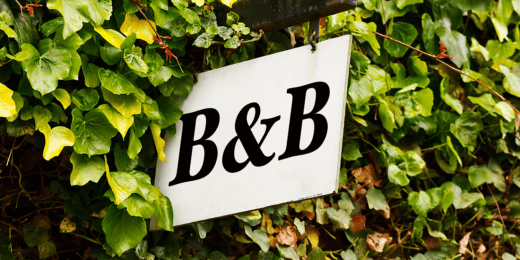One of the easiest ways to establish a successful company is to transform something you’re already passionate about into a business. That’s why, if you’re passionate about working with children, starting a childminding business could be a perfect opportunity for you.
Before you get started, it’s worth pointing out that childminding isn’t just getting paid to babysit. Childminding is a professional service that is highly regulated by the UK Government. That being said, it’s a fantastic option for business-minded individuals who love children, want to work part-time and are willing to commit to setting up a dedicated business.
A childminder is defined by the Professional Association for Childcare and Early Years (PACEY) as a trained carer who looks after one or more children under the age of eight for more than two hours per day in exchange for payment. Childminders often enjoy flexible working with short-term contracts – and most childminders are able to work from home.
Becoming a childminder can be an incredibly fulfilling business opportunity – but there’s also quite a lot of preparation involved in setting up a childminding business. That’s why we’ve developed this Rapid guide to help get you started:
- Training and registration
- Setting up shop
- Rules and regulations
- Top tips
Training and registration
In order to become a childminder in England, you will need to register as a childminder with the UK Government’s Office for Standards in Education, Children’s Services and Skills (Ofsted).
There are different rules for Scotland, Wales and Northern Ireland.
Before you’re allowed to register as a childminder in England with Ofsted, you will first need to get a paediatric first aid certificate. It should be fairly simple to find a paediatric first-aid course on offer in your local area. In fact, your local council may offer their own scheme. These certificates often require just a few days of comprehensive training to gain your certificate.
Next, you’ll be expected to complete a childminder training course – sometimes referred to as a CYPOP5 in Wales – that is approved by your local authority. If you get in touch with your council, they’ll usually be able to provide you with a list of suitable courses.
Again, a lot of councils run their own courses. If your council does not operate its own course, industry body PACEY runs a range of nationwide courses that are approved by most local authorities. After you’ve achieved course completion, it’s time to join the Ofsted register. This is normally the longest and most difficult aspect of the registration process. You absolutely must register with Ofsted if you’d like to be a childminder in England, and there are three different registers you can or should apply for:
The Early Years Register
This is for childminders looking after children aged five and under.
The Childcare Register
This is for childminders looking after children aged five to seven only.
The Voluntary Childcare Register
This is for childminders looking after children eight years and over, and is not a statutory requirement.
Again, you may want to register as more than one type of provider to diversify your business options. For example, you will need to register as both a childminder and a childcarer if you work with three or more other childminders or assistants on some days.
It’s also worth pointing out that to apply, you must have the right to work in the UK, must be 18 years or older and must undergo a Disclosure and Barring Service (DBS) check. If you’re applying for the Early Years Register, you’ll also need to fill in the ‘Health declaration booklet’.
You can register as an individual or as an organisation – and if you are caught offering this service without being registered, you could face an unlimited fine, be sent to prison or both.
Registering usually takes up to 12 weeks if you’re applying to become a childminder or a home childcarer, and 25 weeks for a childcare provider on domestic or non-domestic premises.
After you submit your application to join the register, Ofsted will:
- Check all of your references.
- Review any checks with your doctor, your local council and DBS.
- Check on anyone else may be living or working at the premises where you will be caring for children.
You can also normally expect to be interviewed by an official from Ofsted, and they may want to inspect your premises as part of what’s called a ‘registration visit’.
You’ll only be asked to accommodate a registration visit from Ofsted if you have applied to join the Early Years Register. These inspections see an Ofsted inspector visit your home or premises to ensure it’s suitable for childcare. They’ll also probably ask you about your plans for child development and learning.
If your application is approved, you’ll get a certificate of registration, and details about your new registration will be published online. If you’re registering as a childminder operating on domestic premises, you can ask for your address to remain unpublished online.
Before you get started, you’ll also need to get childminder insurance. There are several major providers available, including PACEY, Independent Child Minders and Morton Michael.
To protect your personal finances in launching this business, you may also want to register your business as a limited company. By forming a limited by shares company, your business will become its own distinct entity in the eyes of the law. That means you’ll be granted what’s called ‘limited liability’, and you will only be liable for company debts up to the value of your shares.
For more information on limited companies and why you may want to consider setting one up for your childminding business, consult our blog.
After that, you’re ready to set up shop and start hosting kids as part of your new childminding business.
Setting Up Shop
Although childminding can be a very affordable business to set up from home, there are some start-up costs you should anticipate.
First and foremost, you should budget in enough start-up money to cover the costs of the registration and training processes we’ve already covered.
- Ofsted registration will cost between £35 and £104, depending upon which registers you decide to join.
- A DBS check for every person over the age of 16 who lives or works in your home costs approximately £52 per person.
- A full paediatric first aid course will normally cost around £100.
- Introductory childminding training that is approved by your local authority will typically cost around £100.
- Public liability insurance usually comes in at around £60.
- You will need car or home insurance to cover costs when transporting or hosting children.
You’ll also need to invest in functional safety equipment. This includes fire detection and control equipment, as well as first aid kits.
Next, you’ll need to invest in toys and learning equipment. Likewise, you’ll need to be sure you have access to age-specific equipment you may need throughout the course of your day-to-day operations. For example, a travel cot for young children to nap, a buggy or stroller for taking them out or highchairs for serving meals.
In addition, you may need to carry out home improvements to ensure your property and garden are safe for childcare responsibilities. Some of these improvements may have been highlighted over the course of your Ofsted home inspection, and could include things like repairing existing fencing, installing child gates within your home or adding childproof locks to cupboards.
An additional start-up cost you may end up incurring is the purchase of childminding resources that can assist in helping you to engage and stimulate young minds. Likewise, you may also want to purchase policy templates or procedures you can implement across your business. Purchasing these will save you time and money, and will also give parents peace of mind that you have professional policies in place for every scenario.
At the end of the day, what you spend setting up your business will depend entirely upon your individual circumstances and your own vision of how you’d like to watch your new business develop.
Rules and regulations
As previously outlined, childminding is a highly regulated industry – and it’s obvious why. Although it can be a fun and rewarding career, becoming a childminder means you are responsible for the safety and well-being of young children. That’s an incredibly important responsibility, and so you will need to fulfil a range of regulatory and care requirements to ensure officials and parents are comfortable with the service you’re providing.
First and foremost, the UK Government oversees rules on how many children you’re allowed to watch.
The legal limit for a registered childminder is six children under the age of eight. Of those six children, no more than three of them can be between birth and the age of five – and you will normally only be allowed to look after one baby under the age of one at any given time.
If you are looking after children aged between four and five years old, and you are only caring for them before or after school, you can care for them at the same time as three other, younger children.
As a childminder, you are also going to be expected to track the development of any children under the age of five that you are caring for under the Early Years Foundation Stage (EYFS). EYFS is more or less just a pre-school curriculum that you are meant to use to guide the teaching and development of toddlers who are under your charge.
In terms of regulatory administration, you must also ensure that absolutely all of your details are constantly up-to-date with Ofsted.
You’ll be expected to update the register using Ofsted Online if you or your business experience any of the following changes:
- Your premises.
- Your contact details.
- Details of other staff or adults living on the premises.
- Childcare hours.
- The registered person or nominated individual if you have registered as an organisation.
In addition to changes, you must also use Ofsted’s early years incident online form in order to report:
- Any allegations that someone who is living, working or looking after children on the premises has committed serious harm or any form of abuse.
- Anything details that could impact upon the suitability of someone on the premises to look after children of any age.
- A serious accident, injury or illness to a child.
If you’d like to work on new premises – including a non-domestic premises – you will need to apply for approval. Your application will be approved or refused in the same way as your original registration, so you should be prepared for this to take some time. If you are a childcare provider working on more than one premises, you must get approval for each premises you would like to provide childcare services on.
Top tips
Once you’ve completed your initial regulatory requirements, set up shop and are ready to start providing childcare services, you’ll have a whole lot of new ideas and strategies to think about in further developing your business.
To try and help you get going, here three top tips that you cannot afford to ignore as a new childminder:
Sign up as a tax-free childcare provider
If you’re an approved childcare provider, you will be able to register to receive payments from parents who have opted to use the Tax-Free Childcare scheme. This scheme enables parents to pay for childcare provision on a tax-free basis – and so chances are your customers will want to use it to pay for your childminding services.
You sign up online in as little as 10 minutes. All you need is a user ID from an invitation letter you should have automatically received upon your registration approval, your bank account details, your Unique Taxpayer Reference (UTR) if you’re registered for Self Assessment and your National Insurance number.
Develop business policies
To comply with EYFS guidelines, your childminding business will need to have policies and procedures in place. They don’t all need to be written – although if you are registered to care for children aged between five and eight, it will be compulsory for you to have a Safeguarding Children Policy and Complaints Procedure in writing.
That said, producing a range of procedures, strategies and policies for parents will help to build your business reputation. These policies will demonstrate to parents and officials that you are professional, you are committed to child health and safety and you’ve thought of every scenario to ensure a smooth and successful delivery of service.
Be prepared for every situation
One of the best ways to start your business out on the right foot is to ensure you’re fully prepared for any possible situation your day-to-day work as a childminder could possibly throw at you.
From a strategic level, that means investing in care equipment that you may not need in the here and now. For example, you might want to consider obtaining equipment or particular toys and resources for children living with disability. On a more day-to-day level, being prepared could simply be a matter of ensuring you have at least one change of clothes for a child of any age or gender – just in case mum and dad forget.
By showing parents you are fully prepared for any scenario or any type of child, you’ll be illustrating the professionalism and commitment to excellence that will ultimately ensure your business success.
Any questions?
So, we’ve given you all of the basics you’ll need to get registered, observe regulatory guidelines and set up shop on the right foot as a childminder. But this list is by no means exhaustive. As a new childminder and a new business owner, you’ll have lots of thoughts and lots of questions about getting started or trying to further develop your business – and we’re always happy to help.
If you have any questions, our knowledgeable team members are always on stand-by to offer you assistance. Simply get in touch by tweeting us at our Twitter handle @RapidUKOfficial and via our Facebook Page.
Please note that the information provided in this article is for general informational purposes only and does not constitute legal, tax, or professional advice. While our aim is that the content is accurate and up to date, it should not be relied upon as a substitute for tailored advice from qualified professionals. We strongly recommend that you seek independent legal and tax advice specific to your circumstances before acting on any information contained in this article. We accept no responsibility or liability for any loss or damage that may result from your reliance on the information provided in this article. Use of the information contained in this article is entirely at your own risk.








Join The Discussion